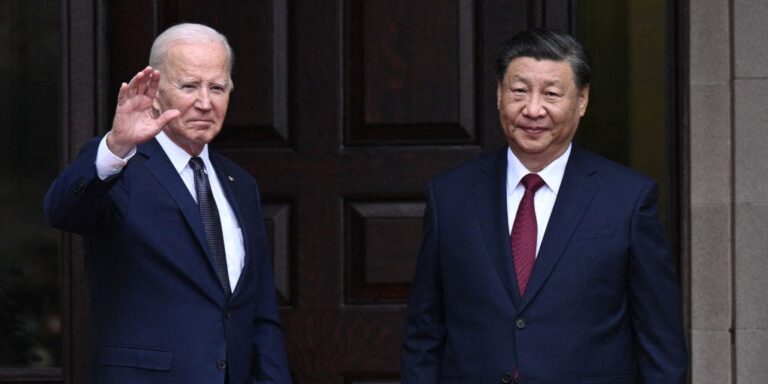- China has suspended arms control talks with the United States over U.S. arms sales to Taiwan.
- China claims Taiwan as part of its territory and has threatened to attack it.
- A State Department spokesman criticized China’s stance, drawing parallels with Russia’s approach.
China has suspended arms control and proliferation talks with the United States, blaming U.S. arms sales to Taiwan for the suspension.
Taiwanese independence has been a decades-long grievance for China’s Communist regime, which first declared independence from mainland China in 1949 when Nationalist rebels fled to the island after the Communists won the civil war.
but, China China claims Taiwan as part of its territory and has threatened to attack if it does not cede sovereignty.
A Chinese government spokesman said at a news conference in Beijing on Wednesday that U.S. arms sales to Taiwan had “seriously undermined the political atmosphere for continuing arms control consultations.”
“The responsibility lies entirely with the United States,” he said.
State Department spokesman Matthew Miller addressed the situation at a press conference, calling it “unfortunate.”
“China has chosen to follow Russia’s lead by arguing that negotiations on arms control cannot proceed amid other challenges in bilateral relations. We believe this approach undermines strategic stability and increases the risks of arms race dynamics,” he said.
U.S. President Joe Biden and his Chinese counterpart Xi Jinping began talks on nuclear proliferation and arms control in November, ahead of the first formal dialogue between the two countries in five years.
Ali Wine, senior research and advocacy adviser at the International Crisis Group, told Business Insider that the decision is unlikely to affect US support for Taiwan.
“This interruption is disappointing given how important it is for the two most powerful countries in the world to have substantive discussions about strategic stability,” Wine said.
“Still, given that the talks were in their early stages and took place against a backdrop of deteriorating bilateral relations, it is unlikely that U.S. or Chinese officials had high hopes for the meeting.”
A 2023 Department of Defense report estimated that China will increase its operational nuclear warheads to about 500 and could have more than 1,000 by 2030, and will continue to expand its arsenal through 2035.
The upcoming US elections in November will be crucial in setting the agenda for future negotiations.
A YouGov poll shows Donald Trump leading Biden by two percentage points.
Analysts at the Brookings Institution predict the trade war between the U.S. and China could escalate if President Trump takes office.
Trump’s new vice president-elect, J.D. Vance, has been outspoken on China-Taiwan relations, saying in a speech last year that a Chinese invasion of Taiwan could be “devastating for our country.”
“A lot of our computer chips are made in Taiwan and that would devastate our entire economy.”
Representatives for Biden and Xi Jinping did not immediately respond to Business Insider’s requests for comment.

